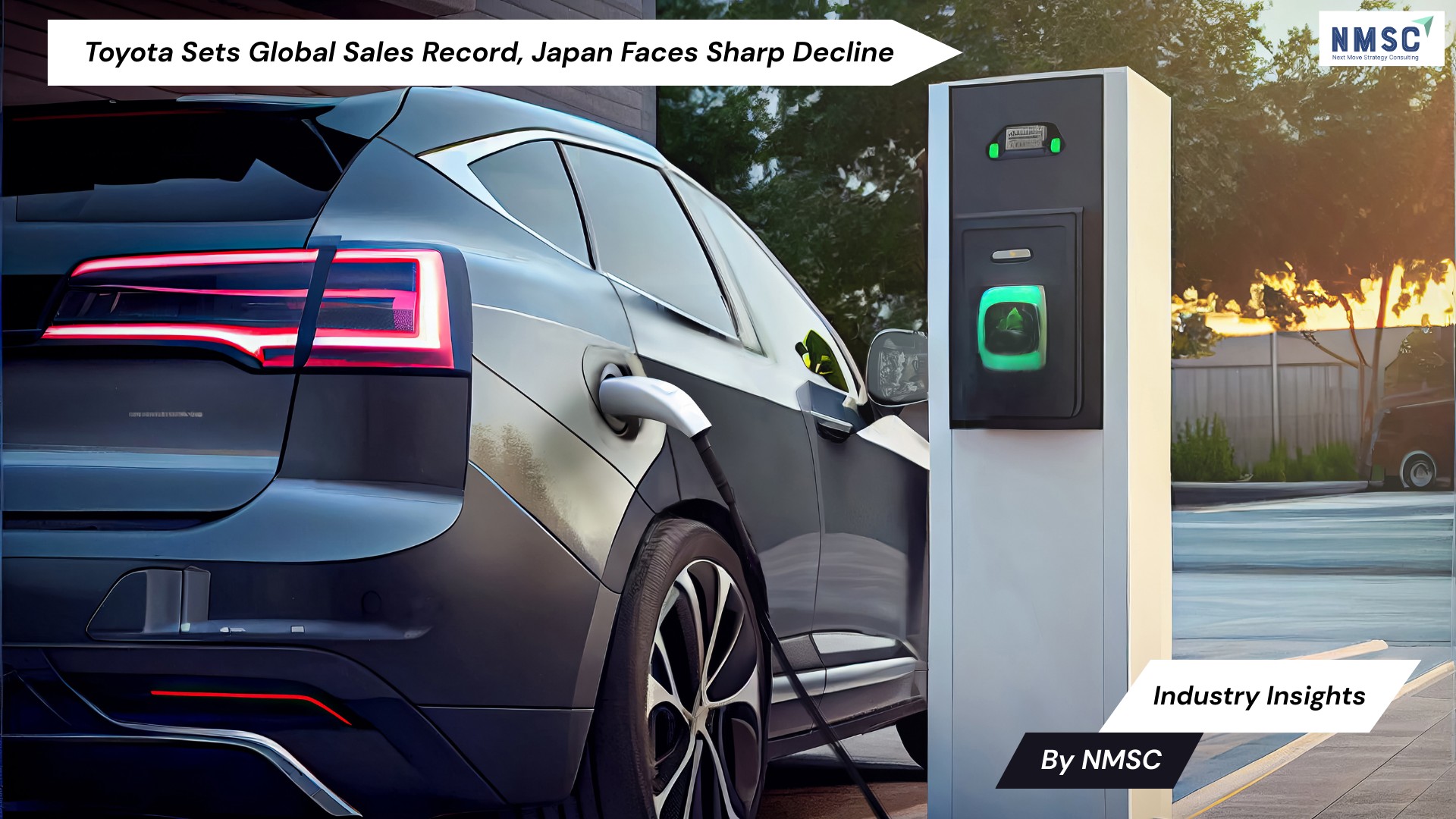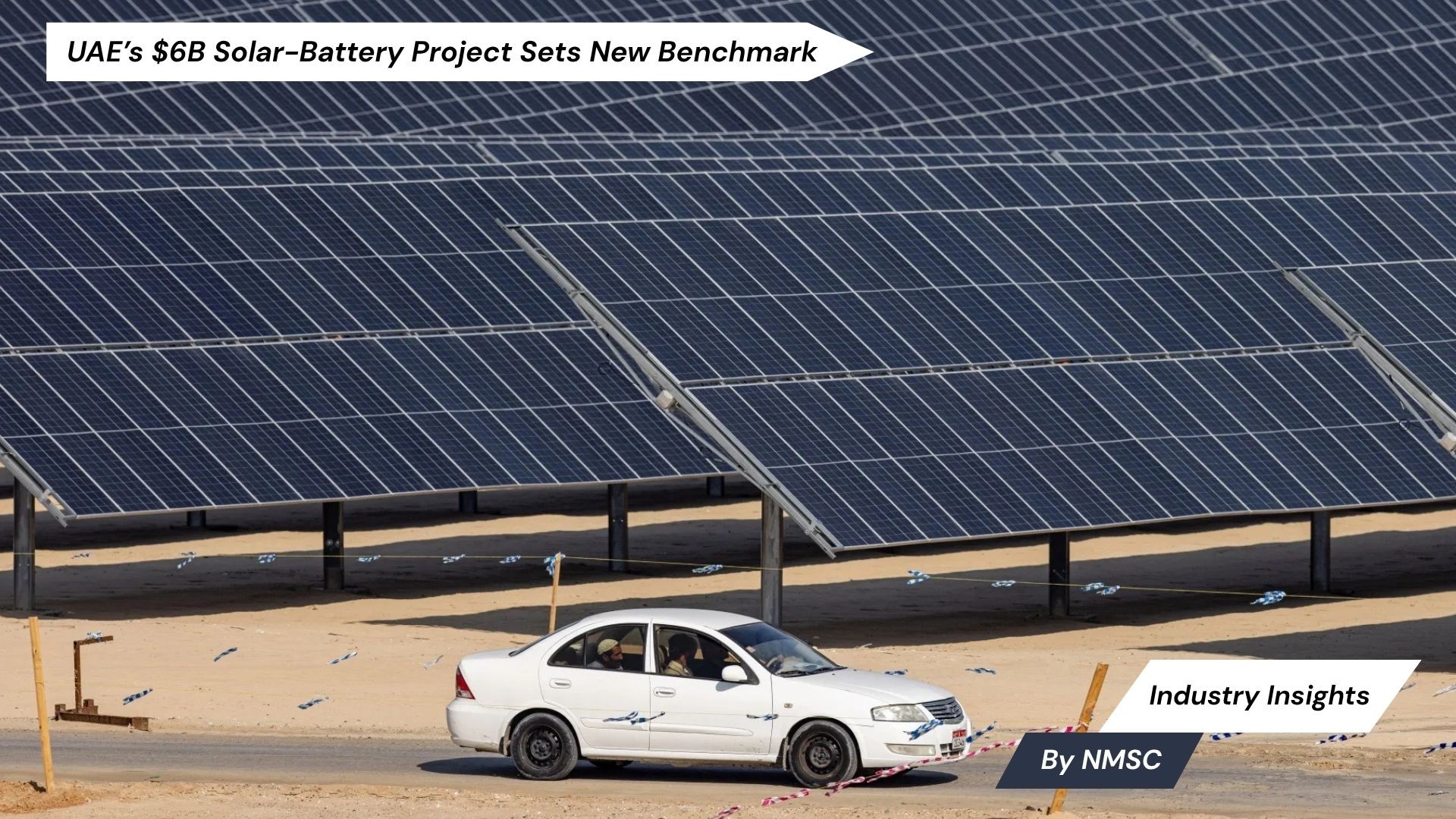Toyota Sets Global Sales Record, Japan Faces Sharp Decline
Published: 2025-09-29

Industry Insights from Next Move Strategy Consulting
Toyota, the world’s leading automaker, has achieved a record-breaking sales milestone, with global deliveries reaching 900,598 vehicles in August, a 1.1% increase year-over-year. However, beneath this headline success lies a stark contrast: while international markets, particularly the US, fuel Toyota’s growth, its home market in Japan is grappling with a significant downturn, raising questions about shifting consumer preferences and economic challenges.
A Tale of Two Markets
For much of 2025, Toyota, alongside its group companies Daihatsu and Hino, has maintained a robust trajectory, consistently posting strong sales and production figures. In August, global production rose nearly 4% to 837,869 units, reflecting sustained demand. Yet, Japan’s market told a different story, with sales plummeting over 10%. This divergence underscores the uneven dynamics shaping Toyota’s performance, as global appetite for its vehicles-particularly hybrids-contrasts with a sluggish domestic market.
US Strength Offsets Domestic Weakness
The United States has emerged as a critical growth driver for Toyota. Sales of Toyota and Lexus models surged nearly 14% in August, propelled by strong demand for hybrid vehicles. This trend aligns with broader consumer shifts toward fuel-efficient and sustainable mobility options. Globally, Toyota’s battery-electric vehicle (BEV) sales also gained traction, rising 35% to over 17,000 units. However, Japan’s EV adoption remains strikingly low, with only 18 fully electric Toyotas sold domestically in August, highlighting a slow transition to electrification in the region.
China, another vital market, showed resilience. Toyota’s diverse hybrid portfolio continues to secure steady demand, even as global brands face intensifying competition in the region. This balance of hybrid strength and selective EV growth has helped Toyota navigate varied market conditions.
Tariff Pressures Cloud Profit Outlook
Despite operational successes, Toyota faces financial headwinds. The US-imposed 15% tariff on imported cars and parts has prompted a downward revision of Toyota’s profit forecast. The company now projects an operating income of ¥3.2 trillion for the fiscal year ending March 2026, a significant reduction from its earlier ¥3.8 trillion estimate, equating to a ¥1.4 trillion ($9.5 billion) shortfall. These trade challenges underscore the broader economic complexities impacting global automakers.
Impact on the Battery Electric Vehicle Market: Next Move Strategy Consulting’s View
From a market research perspective, Toyota’s performance offers critical insights into the global Battery Electric Vehicle (BEV) market. The 35% surge in BEV sales worldwide signals growing consumer acceptance, particularly in markets like the US, where infrastructure and incentives are accelerating adoption. However, Japan’s negligible EV sales-18 units in August-highlight persistent barriers, including limited charging infrastructure, consumer hesitancy, and a strong preference for hybrids. This regional disparity suggests that automakers must tailor electrification strategies to local market dynamics. For Toyota, the reliance on hybrids as a bridge to full electrification remains a competitive advantage, but the sluggish domestic EV uptake could hinder long-term growth in a rapidly evolving BEV landscape.
Navigating a Shifting Landscape
Toyota’s August performance encapsulates the complexities of the global automotive industry. While record-breaking international sales demonstrate the company’s resilience, the sharp decline in Japan raises concerns about economic stagnation and changing consumer priorities. The contrast between robust hybrid demand and slow EV adoption in Japan further complicates Toyota’s electrification strategy.
As trade tariffs and market-specific challenges persist, Toyota’s ability to balance regional disparities will be critical. The company’s hybrid leadership continues to provide a buffer, but the global push toward electrification demands a sharper focus on BEV innovation to maintain its competitive edge.
Source: hindustantimes
Prepared by: Next Move Strategy Consulting
About the Author
 Nitrishna Sonowal is an SEO Executive and Content Writer with 3+ years of experience in digital marketing. She combines analytical insights with creative storytelling to deliver impactful digital solutions. Beyond work, she enjoys dancing, baking, and exploring new places.
Nitrishna Sonowal is an SEO Executive and Content Writer with 3+ years of experience in digital marketing. She combines analytical insights with creative storytelling to deliver impactful digital solutions. Beyond work, she enjoys dancing, baking, and exploring new places.
About the Reviewer
 Debashree Dey is a skilled Content Writer, PR Specialist, and Assistant Manager with expertise in digital marketing. She creates impactful, data-driven campaigns and audience-focused content to boost brand visibility. Passionate about creativity, she also draws inspiration from design and innovative projects.
Debashree Dey is a skilled Content Writer, PR Specialist, and Assistant Manager with expertise in digital marketing. She creates impactful, data-driven campaigns and audience-focused content to boost brand visibility. Passionate about creativity, she also draws inspiration from design and innovative projects.
















Add Comment